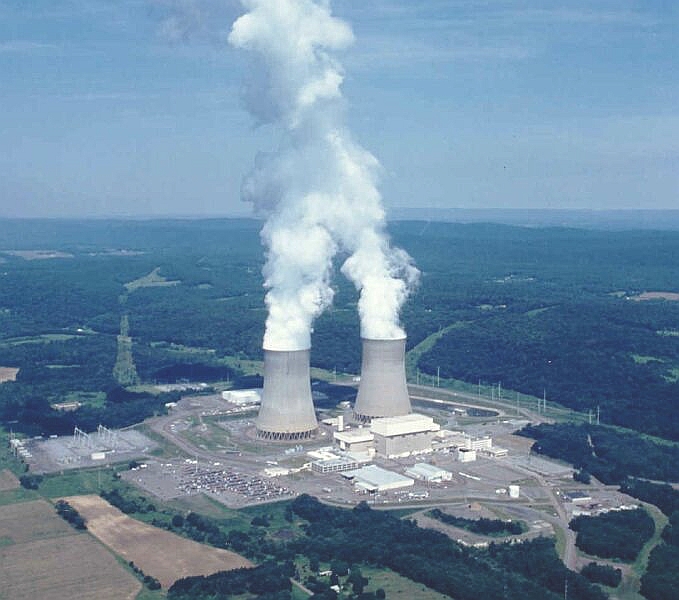The debate over the benefits of nuclear power versus the problems of nuclear power has raged for decades. Some of the basic pros and concerns with them are listed below.
- Nuclear power generation emits very little carbon dioxide into the atmosphere and so does not contribute to global warming. Even including the whole life cycle with mining, refining, power generation, disposal of waste and decommissioning of nuclear power plants, nuclear power produces far less carbon dioxide per kilowatt hour of electrical power than fossil fuel power plants. On the other hand, wind, solar, hydro and geothermal may ultimately produce even less carbon dioxide and they do not produce waste.
- Nuclear power plants produce less radiation than we are exposed to in our natural environment. This claim is based on the proper operation of a nuclear power plant. It does NOT include radiation given off by mining, refining, accidents and waste storage and disposal which are a real threat to the environment.
- A nuclear power plant does not generate pollution like coal and oil fired power plants. This is true for complex hydrocarbons, particulates, sulfur and mercury produced by burning coal and oil for power. On the other hand, any accident which results in the release of radioactive materials poses a very serious threat to the environment and people living near the plant.
- A single nuclear power plant generates a great amount of electricity. The problem with this is that concentration of power generation in one location makes the power supply vulnerable to natural disasters or intentional attacks. It also requires that the power grid be able to transmit the electricity long distances to where it is needed which results in significant transmission losses.
- With respect to deaths directly attributable to a major source of energy, nuclear power has a very good record. From 1970 to 1992, there were 342 deaths from coal per terawatt per year as opposed to 8 deaths from nuclear energy per terawatt per year. The problem with this analysis is the fact that cancers can take decades to develop so the real death number from nuclear energy use may be much higher than this particular study indicates. In addition, a single serious accident could kill hundreds or thousands of people. Accidents at fossil fuel plants do not have this level of danger.
- In terms of cost per kilowatt hour, nuclear is cheaper than coal and oil and much cheaper than wind and solar. This may be true for the moment but the cost of nuclear power is unlikely to go down and the cost of wind and solar is steadily dropping. In the near future, the cost per kilowatt hour for wind and solar will be much less than nuclear.
- Nuclear power can operate around the clock unlike wind and solar. While technically true, there are systems under development which will store energy from wind and solar and feed it to the grid when energy production drops.
- The world has an insatiable appetite for electricity which only nuclear power can satisfy economically. Given the estimates of the costs of the recent Fukushima disaster and fact that Fukushima Unit 4 threatens the entire northern hemisphere, this is a highly questionable argument.
Susquehanna nuclear power plant:
